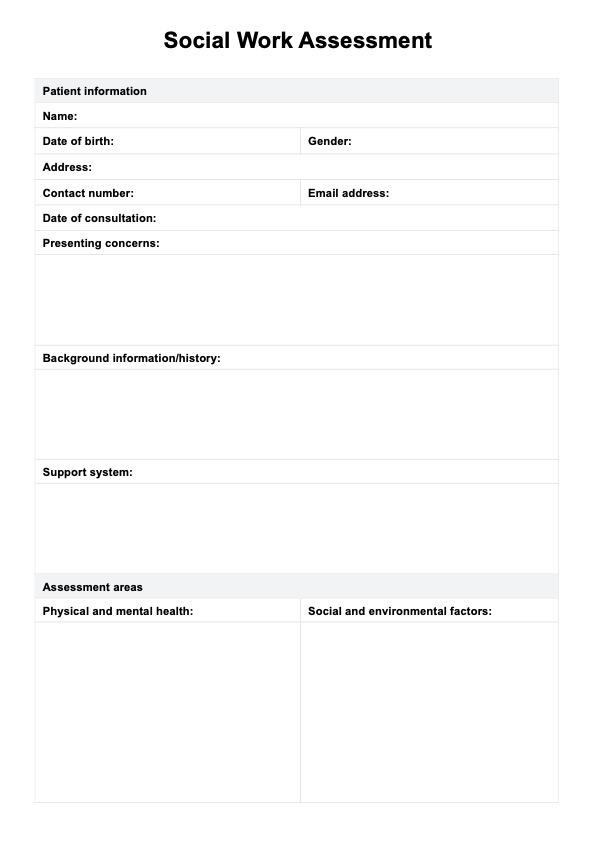Social Work Assessments involve gathering information about an individual's or family's circumstances, strengths, challenges, and needs. This process typically includes interviews, observations, and reviewing relevant documents and records.

Social Work Assessment
Check out our comprehensive Social Work Assessment for individuals and communities. Address client needs and strengths for empowered change and greater well-being!
Social Work Assessment Template
Commonly asked questions
A Social Work Assessment aims to comprehensively understand a person's situation, including their physical, emotional, social, and environmental factors. It helps identify their strengths and needs, informs intervention planning, and guides the development of a tailored support or treatment plan.
Social Work Assessments are typically conducted by qualified social workers with the necessary training and expertise to assess individuals and families. These professionals are skilled in conducting interviews, using assessment tools, and analyzing information to inform decision-making.
EHR and practice management software
Get started for free
*No credit card required
Free
$0/usd
Unlimited clients
Telehealth
1GB of storage
Client portal text
Automated billing and online payments











